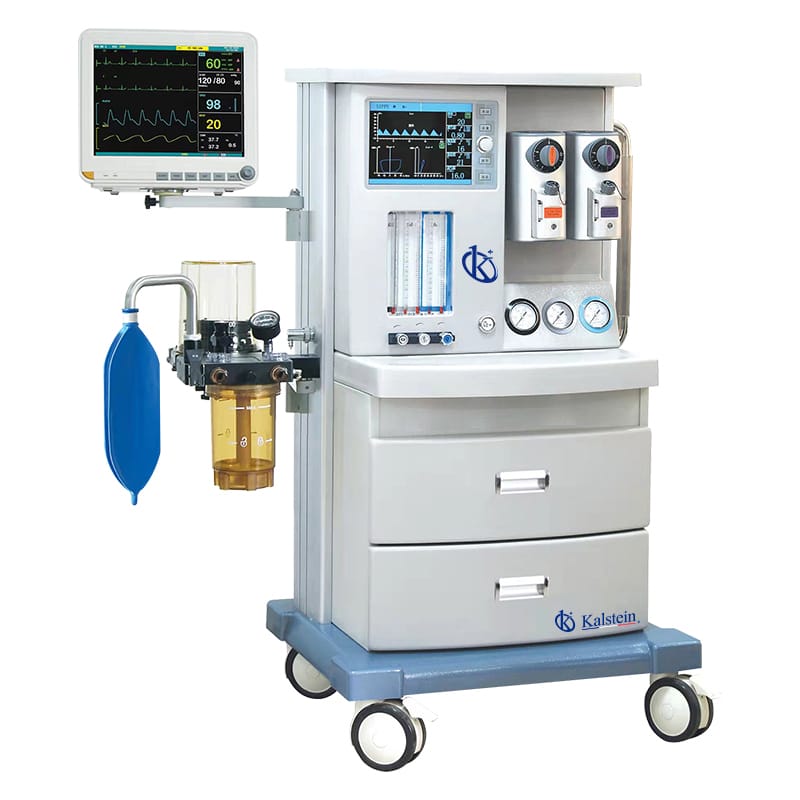Anesthesia machines have significantly evolved over the past few decades, and with technological advances, real-time advanced monitoring is now possible. A key player in this technological revolution is the manufacturer Kalstein, known for its dedication to quality and innovation in laboratory equipment. https://kalstein.pt/category-product/medical-line/anaesthetic-machine/
The future of anesthesia machines with advanced monitoring looks promising, with continuous technological advancements that promise to further enhance the safety and efficiency of surgical procedures. Kalstein remains a leader in this area, investing in research and development to incorporate new technologies such as artificial intelligence and machine learning into their devices. These innovations have the potential to take patient monitoring to new levels, allowing for more accurate predictions and faster responses to fluctuations in patient conditions.
The Revolution of Kalstein’s Anesthesia Machines
Kalstein has introduced a new generation of anesthesia machines with advanced monitoring capabilities that represent a revolution in modern medicine. These machines are designed not only to administer anesthesia but also to provide precise, real-time data on the patient’s state. Thanks to the integration of high-precision sensors and data processing algorithms, anesthesiologists can make more informed decisions and improve patient outcomes.
Advanced monitoring includes parameters such as oxygen saturation, blood pressure, heart rate, and in some models, levels of anesthetic gases and patient carbon dioxide. This data is presented intuitively on high-definition screens, enabling a quick and accurate assessment of the patient’s condition. Kalstein’s innovation in this field has transformed anesthesiology, making procedures safer and more efficient.
Clinical Benefits of Advanced Monitoring
The implementation of anesthesia machines with advanced monitoring has multiple clinical benefits. Among the most significant is the ability to anticipate and prevent complications during surgical procedures. By providing real-time information on the patient’s vital signs, anesthesiologists can adjust anesthesia doses to meet specific needs, reducing the risk of over or under-dosing.
Kalstein, as a leading manufacturer, has worked to ensure that its machines not only meet the highest safety standards but also offer innovative features that make them easier to use. Intuitive and customizable user interfaces allow medical professionals to focus on the patient without unnecessary distractions. Additionally, these devices are designed to be compatible with other monitoring systems in the operating room, creating an integrated and efficient work environment.
Price and Purchase Considerations for Anesthesia Machines
When considering investments in high-tech medical equipment, price is a crucial factor. Kalstein’s advanced monitoring anesthesia machines, while representing a significant investment, offer exceptional long-term value. The initial cost is offset by clinical and operational benefits, including improved patient safety and operational efficiency. Studies have shown that anesthetic complications can be extremely costly in terms of both money and patient health impact. Investing in advanced technology can, therefore, result in long-term cost reductions.
The cost-benefit analysis should include not only the initial purchase price of anesthesia machines but also costs related to maintenance, software updates, and staff training. Kalstein offers comprehensive support programs and maintenance packages that ensure the longevity and maximum efficiency of their equipment, providing a considerably high return on investment.
Impact on Global Medical Practice
The advancement of anesthesia machines with advanced monitoring has had a profound impact on patient safety globally. Kalstein’s new devices allow for closer and more precise monitoring of patient conditions, contributing to the early detection of complications and quicker intervention. These improvements have led to a significant reduction in the incidence of adverse events during surgical procedures, thereby reinforcing confidence in anesthetic interventions.
Moreover, improvements in user interfaces and integration with other monitoring systems in the operating room have made anesthesiologists’ work more efficient and less error-prone. This has elevated the standard of care in all aspects of anesthesiology, making procedures safer for patients and more manageable for healthcare professionals. If you wish to check out the high-end product catalog that Kalstein has for you, visit https://kalstein.pt/

